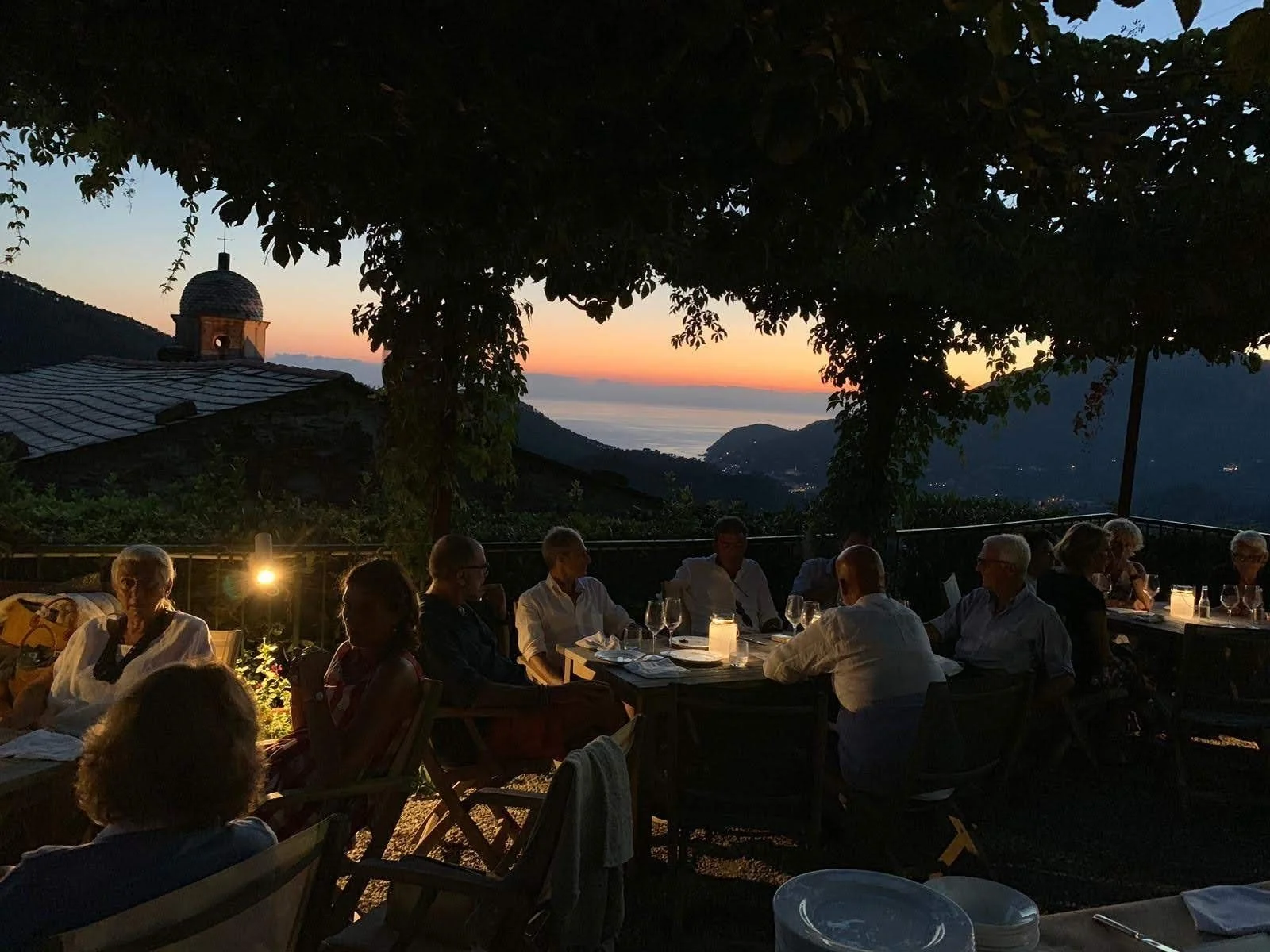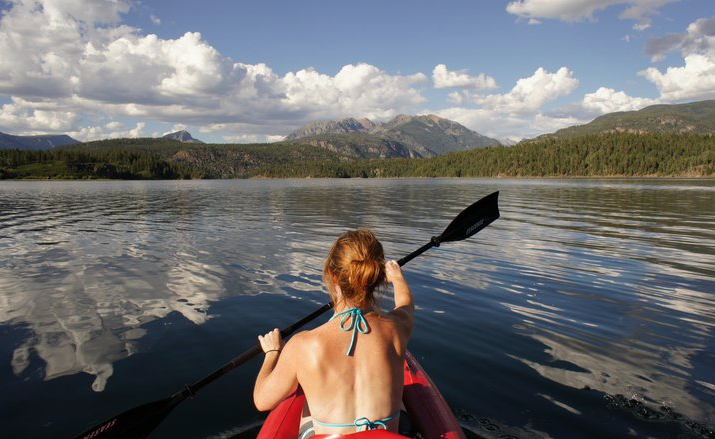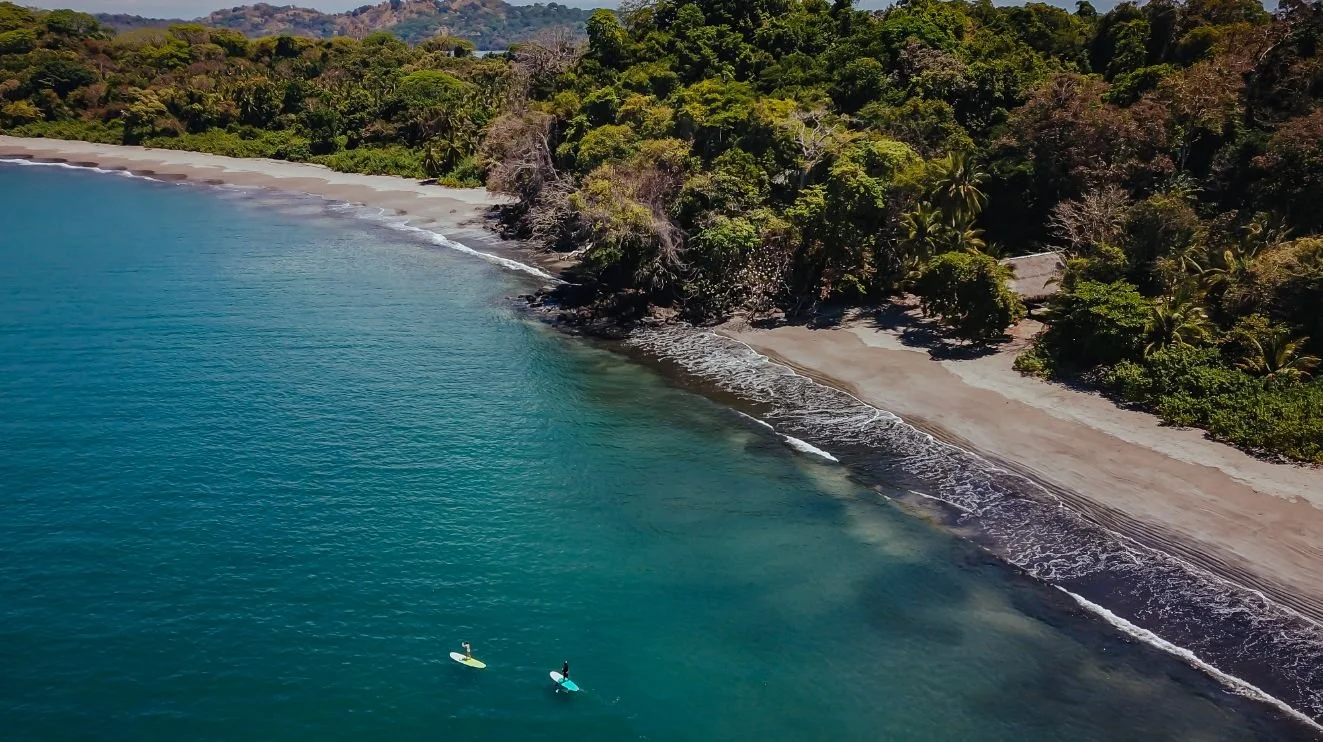Reduce the Stress of Planning Trips and Elevate Your Travel Experiences
SEven STEPS TO REVOLUTIONIZE YOUR TRIP PLANNING
Written by: Katy
Dinner overlooking the Mediterranean at La Sosta di Ottone III
What's the best way to make your travel wishlist a reality? Plan a year at a time.
Dreaming of far-off destinations and exciting adventures is one thing, but turning those travel aspirations into a reality can often be a stressful and overwhelming process. Many of us find ourselves caught up in the whirlwind of planning one trip at a time, reacting to immediate desires without considering the bigger picture. However, there is a better way to make the most of your travel experiences – by planning a year at a time.
According to a survey by Hotels.com conducted across 26 countries with 7,800 participants, it was found that the average person spends over 10 hours planning a trip. Surprisingly, the majority of those individuals lost interest in the planning process within just 42 minutes, leading many to abandon the trip because organizing it was too "tiring" and 50% to go somewhere they've been before to avoid the additional research.
Taking a proactive and holistic approach to travel planning allows you to optimize every moment, maximize your budget, and ensure that each destination on your wishlist becomes a memorable and fulfilling experience. In this article, we will explore how to reduce the stress of planning trips and elevate your travel adventures by embracing a year-long travel plan that aligns with your time, budget, and aspirations.
Susafa, Sicily
Perhaps you can relate to the familiar scenario many of our clients have faced in their trip-planning process.
Picture this: You find yourself just two months away from an eagerly anticipated overseas trip. It's only a week or so long because due to time constraints, it's been left until the last minute. After a long day of work, with tired eyes from staring at screens, you realize that you have some travel planning to tackle, or else your dream trip may fall apart. The pressure mounts as you worry about balancing your workload and taking the much-needed holiday. It feels disheartening, and you spend the evening getting frustrated and making rushed decisions for a trip that was meant to bring rejuvenation, happiness, and relaxation.
Here's what often happens following this scenario:
Higher costs: You spend too much money on airfare and accommodations
Fewer options: You don't have the opportunity to book the accommodations or experiences you want because of low availability
More time planning. Planning takes longer because you have to dig more (see the second point)
Disorganized: Last-minute planning means last-minute packing and prep. You're likely to forget things, not have made the purchases you need, and raise your hand if you've grabbed your passport on the way to the airport to realize it's expired….you're not alone on that one. And, did you tie all of those loose ends up at work?
One of the crowd: You end up with the masses in over-touristed spaces because you didn't have the time to research better destinations and experiences.
In short, way too much effort and money was spent on a trip that could have been so much more.
Instead, envision a different scenario where you find yourself months before your travels, daydreaming about the upcoming adventures, not feeling overwhelmed by them. Imagine being that person who has their luggage packed a week in advance, feeling confident that colleagues, employees, and supervisors won't be burdened in your absence. Visualize leaving your home with ease, ready to embark on journeys that not only fulfill your travel goals, whether it's unwinding, cultural immersion, or enjoying a family vacation, but also provide you with a deeper connection to your destination.
Your travel life gets to be what you craft and curate it to be. Or what we craft and curate it to be, together.
Whether you’re an avid traveler or just getting started on your journey, to maximize results while minimizing effort, proactive travel planning can be the difference between success (meeting your travel goals) and lackluster experiences.
Proactively planning your trips will help you keep the fun aspects of the planning process – the dreaming and anticipation – while removing a lot of the stress, the exorbitant costs, and the less-than-great experiences that are typical with last-minute planning.
Feasting with friends at Menorca Experimental
The Benefits of Travel for Busy Individuals
Take a moment to reflect on those instances when your creativity soared, solutions came with greater ease, and life-changing experiences unfolded. Often, these moments emerge when we break away from our daily routines and venture into new environments. Whether it's a serene stroll in nature before the day begins or navigating cobbled streets in a foreign land, these experiences allow us to reconnect with our purpose and rediscover our joie de vivre.
Now, let's address the issue of burnout in our fast-paced world. With work-related stress, family obligations, and an incessant pursuit of success, many individuals find themselves caught in the grip of burnout and overwhelm. Paradoxically, this relentless drive often impedes the very success we strive for, as it neglects our own well-being, hampers our performance in the workplace, and severely shortens our patience with our loved ones.
Thankfully, travel emerges as a potent antidote to burnout and overwhelm. It offers a transformative shift in perspective, enabling us to detach from the routines and immerse ourselves in unfamiliar surroundings. This change of scenery becomes a gateway for our nervous system to reset, find inner peace, and rekindle the sparks of creativity and joy within us. However, it is crucial to prioritize our wellness and mental health, not only by planning ahead but during our travels, ensuring that we return revitalized rather than further depleted.
To ensure that travel doesn't add to our stress, there are a few steps we can take before and during our travels:
Minimizing jet lag naturally is simply self-care and allows us to make the most of our trip by reducing or eliminating it. Read our tips on how to avoid jet lag HERE.
Embracing the concept of slow travel, we can minimize the number of destinations visited and lengthen the time spent in each location, which will help us maximize our experiences at the same time.
Engaging in a daily mindfulness practice, such as morning yoga, meditation, or serene walks early in the morning, helps cultivate a sense of groundedness.
Prioritizing self-care by getting sufficient sleep, nourishing ourselves with healthy meals, and allowing ourselves relaxation treatments like massages or spa visits are important for our health. See some of our favorite hotels for a relaxing vacay HERE.
Additionally, consciously disconnecting from technology and allocating specific times for emails, social media, and calls allows us to fully immerse ourselves in the present moment and savor the beauty of our surroundings.
Travel not only brings personal benefits but also positively impacts others. Visiting and circulating money at local establishments while respecting customs and cultures can be a way to support communities around the world. Exposing ourselves to different perspectives helps cultivate empathy, fostering a more compassionate global community.
Self-care among in the olive groves at Masseria Dagilupi
Prioritize Your Life Experiences
Humans are inherently drawn to new experiences and connections, and it is vital to allocate time and space for these moments to nurture our mental health, overall well-being, and performance in various aspects of life, including work, relationships, and parenthood.
Travel is an essential tool to help us perform our best, create deeper connections with the world around us, and live life to its fullest potential. Why do we wait until the last minute and plan reactively instead of proactively? Like a health coach, a physical trainer, or a financial planner, we benefit from strategizing and working towards a better travel life, investing in experiences and inspiration, and challenging ourselves to see the world from a different angle...there are so many beautiful angles to see it in.
As you embark on your next travel adventure, remember the underlying purpose behind your journey. Why do you choose to travel? We invite you to share your stories, as each trip has the potential to unlock transformative experiences and shape our lives in profound ways.
Here’s how to start organizing your travel life:
What do you want to accomplish for the year? Physical and emotional needs, goals, etc. Write it down.
Create a destination wishlist
Evaluate ideal times to visit these location and prioritize the wishlist according to needs and desires
Assess your annual budget
Review your time and flexibility
Set aside a few weekends to plan or get help curating your annual travel portfolio with an advisor
>>> We'll dig deeper into the details of these priorities just below, but before we move on, have you considered planning your travel all at once, a year in advance?
For example: look ahead in your calendar for less-busy times at work and/or after big projects wrap up to reconnect with your nervous system, and consider that as an optimal time to take a rejuvenating getaway in a destination where you can slow down, think less, and savor life; or if you know you or your partner have a work trip on the horizon, plan to lengthen your trip using some flexible time and take advantage of cultural inspiration on a city break; perhaps there's a period of time when you can work remotely at length and put yourself on a beautiful island for a month, like this one.
Paddling the lakes in Colorado
Look at Your Travel Life Strategically
Take a moment to reflect on the last time you had an upcoming trip fully organized months in advance. Remember the feeling of having accommodations, tickets, ground transportation, and a few experiences lined up long before it was time to travel? It was amazing, wasn't it? We believe that you should experience that level of preparedness and excitement every time you travel.
Approaching your travel life strategically and holistically yields numerous benefits, allowing you to make the most of each year by optimizing every experience, every moment, and every dollar spent.
With the flexibility that many of us now have in our working conditions following the pandemic, there is a greater opportunity to fully utilize our time. You might be surprised to discover that you can travel much more than you think, as long as it's not treated as an afterthought.
While we specialize in planning and curating individual trips for our clients, we also emphasize the benefits of visualizing and actualizing a portfolio year of travel. Why one year? We consider it the sweet spot because longer durations carry the risk of life and global circumstances changing unexpectedly. On the other hand, planning for less than a year, especially for "big" trips, often leads to procrastination and a missed opportunity to bring those dreams to life.
Create an Annual Travel Strategy
To empower you in taking a proactive approach to your travel plans, here are seven steps to creating your own annual travel strategy, ensuring that you make the most out of each year:
1 What do you want to accomplish?
Take some time to consider the experiences and emotions you wish to have during the year, both for the entire year and for individual trips. Identify your needs. Are you seeking relaxation or energizing and active experiences? What are your goals? Is there a language you want to learn or specific health milestones you want to achieve? Grab a journal and jot down all your thoughts and aspirations.
2 Create a travel wishlist
Start by noting down the destinations that have been on your mind. Consider any mandatory trips related to work, family, weddings, or other commitments. Don't hold back—this is a brainstorming session! If you don't have specific destinations in mind, think about the types of places that align with your previously identified needs. Once you have a general idea, conduct some research to find destinations that suit your goals and desires.
3 Evaluate Timing and Prioritize
After compiling your wishlist, dive into researching the best time to visit each destination. Here are a few things to consider:
Identify off-season and shoulder seasons when you can maximize your experience while avoiding excessive tourist crowds (good for you, good for the destination).
Are there any special events or seasonal attractions you'd like to attend at these destinations, such as wine harvest in Sicily or Jazz Fest in New Orleans?
Determine which trips require more extensive planning, time, and budget. These "big" trips might involve traveling with a group, take extensive time to get to, and/or be destinations outside your familiar cultural norms.
Identify trips that require less effort to make happen. These could be destinations closer to home, easily reachable by a single train or plane ride, or places you're already familiar with.
4 Asses your flexibility
Consider the constraints and flexibility of your schedule and that of your travel companions:
If you have children in school, evaluate their academic calendar and the school's policies regarding absences during term time.
Assess the amount of vacation time you have available and explore the possibility of remote work, if applicable.
Look for opportunities to combine destinations on your wishlist to optimize time and output. If you can work flexibly, this is a great way to go.
5 Review your annual budget
If you haven't already, prioritize creating a travel budget to fund your experiences. Many individuals accumulate debt from unplanned travel ventures.
How much do you budget? It depends on how big of a priority travel is in your life, your means, the distance(s) you plan to travel, and your preferred travel style.
As a reference point, the average traveler spends around 10% of their annual income on travel. If you're unsure, this can serve as a starting point.
Also, consider how many "big" trips you can realistically undertake compared to less intensive trips. Would you prefer one significant trip with a few less intensive ones, or several simple trips without any "big" ones?
6 Allocate Time for Planning
There is no magic wand for getting travel planning done without effort (unless you work with someone else to do it). Planning a trip is time intensive and this is one of the reasons it's so important to set aside time for it.
The same Hotels.com survey mentioned above, also found that 30% of people found a reduction in work productivity when planning a trip with 46% of those polled admitting to doing so while in the office. Double whammy.
To get it done, we suggest making it fun and relaxing. Put on good music, grab your bev of choice, sit somewhere (other than a work desk) that inspires you, and get yourself in the vacay mood. Schedule several sessions like this to work through your planning. If you're a group or family, make hangout session(s) of it and enjoy!
7 Get all of the Rocks in the Jar
Now, let's apply The Big Rock Theory to trip planning. Imagine a jar filled with rocks, gravel, and sand. To ensure everything fits, you must add the rocks first, followed by the gravel, and finally, the sand. Apply the same concept to your trip planning process.
Which trips are your "big rocks," including mandatory work trips, important family gatherings, or destinations that are at the top of your wishlist. Assess how these high-priority items align with your travel calendar, ensuring they are scheduled during ideal visiting times, preferably outside of their peak seasons.
Proceed to the "gravel," which represents the trips that are of high importance but not mandatory. These may include opportunities you'd love to seize or specific windows that align with this year's travel calendar.
Finally, consider the "sand particles," which are the smaller, more flexible trips that can fill in the gaps. These could be weekend getaways, easily accessible weeklong trips, or visits to friends that require less planning.
Any trips that don't fit into this year's planning, can be added to a future planning list for next year.
Get into "vacation zone” for planning
Benefits of proactively planning travel, a year at a time
Imagine a life of enriched travel experiences and reduced stress. Picture waking up each day excited, knowing that your dream destinations and experiences are already planned and waiting for you. With a well-planned travel life, you'll find yourself with the freedom to embrace the moment. Whether you're immersing yourself in fulfilling work or exploring that long-awaited dream destination, your proactive travel planning enables you to focus on the here and now.
Embracing proactive travel planning is more than just a practical strategy; it is a mindset that prioritizes your well-being and nurtures a deep sense of wanderlust and adventure. By carefully crafting your travel itinerary in advance, you create a framework that maximizes your time, reduces last-minute stress, and provides a solid foundation for exploration and self-discovery. It allows you to fully immerse yourself in the cultures and destinations you visit, connecting with locals and experiencing the true essence of each place.
We’re here to serve you
Planning one trip can be overwhelming. Planning multiple trips is a large time investment. It's worth it, but it's also worth it to leverage your time and find travel advisors and strategists that can help you do it.
Good Trips was born out of Katy Hoogerwerf's belief that travel has an unparalleled ability to forge meaningful connections and ignite a wealth of new ideas, expanding our perspectives beyond our own. As Katy recognized the significance of responsible travel, she also understood the challenges associated with practicing sustainable tourism. Motivated to remove these obstacles and make sustainable travel more accessible, she founded Good Trips.
By blending her expertise in travel planning, sustainable living, and with a design-forward approach, Katy ensures that every trip curated by Good Trips not only delivers exceptional and enriching experiences but also generates positive social and environmental impact. The aim is to create a seamless fusion of beauty and sustainability, where travelers can explore the world while leaving a meaningful footprint.
We invite you to dive deeper into our Trip Curation services and discover how we can support you in prioritizing your best life experiences, all while making a positive difference. Learn more HERE
Isla Palenque, Panama
So, dare to dream big and plan strategically. Embrace the benefits of proactive travel planning and embark on a journey that is intentionally crafted, and every experience leaves a lasting imprint. Maximize the potential of your travel adventures, prioritize your well-being and creativity, and create memories that will stay with you.
Written by: Katy











